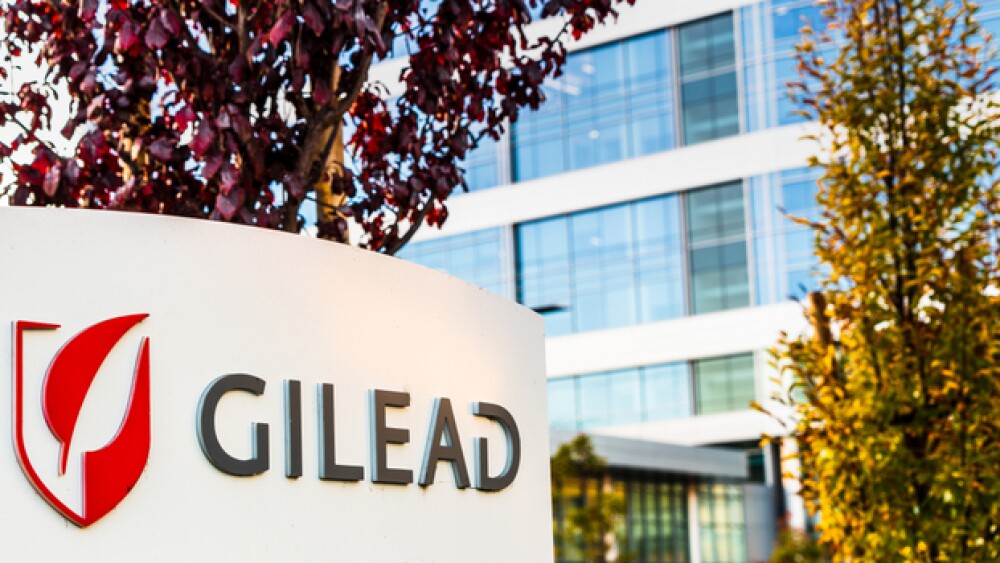As the world waits with bated breath for a treatment for COVID-19, all eyes are on Gilead Science’s antiviral drug remdesivir as a potential candidate.
Sundry Photography / Shutterstock
As the world waits with bated breath for a treatment for COVID-19, all eyes are on Gilead Science’s antiviral drug remdesivir as a potential candidate. While data is still preliminary, a paper has shown efficacy in treating the virus with the antiviral, but also some potential concerns over safety.
The Motley Fool’s Cory Renauer first reported the concerns of elevated liver enzymes in three patients who have been treated with the medication that has shown antiviral activity in preclinical studies of Ebola, Marburg, MERS and SARS. The last two, MERS and SARS, are both caused by coronaviruses and have some similarities to the coronavirus causing COVID-19. Citing an unpublished paper “circulating ahead of an official peer review” that described the treatment of three COVID-19 infected patients given remdesivir, Renauer said there were no negative reports on efficacy. However, he reported the concerns over safety. The three patients who were treated with Gilead’s drug recovered from COVID-19, but those patients “reported significant gastrointestinal symptoms.” Renauer added that “investigators also noticed elevated liver enzyme levels in their blood samples.”
Despite the concerning elevated liver enzymes, Renauer was quick to note that it is too early to judge the final outcome of the trial based on this preliminary paper, which looked at the first 12 U.S. cases of COVID-19. Renauer said the results discussed in this paper are not from a clinical trial designed to measure safety or efficacy of remdesivir. Gilead is currently launching two Phase III clinical trials of the antiviral in patients infected with COVID-19. Of the 12 patients cited in the paper, “only the three most seriously affected were given remdesivir,” Renauer reported. In his report, Renauer noted that all three of the treated patients experienced gastrointestinal issues and, ahead of treatment with the Gilead drug, one complained of diarrhea. While the three had elevated liver enzymes, Renauer reported that “concentrations among some patients that weren’t treated with remdesivir peaked higher than those that were.”
The two late-stage trials being conducted with remdesivir are subject to randomization. The paper Renauer cited in his article points to only three of the most seriously ill patients who were provided the medication – which is not randomized like a trial. Gilead’s trials are expected to include about 1,000 patients and will be randomized, which will provide a more complete safety profile. As BioSpace previously reported, the two Phase III trials will study the safety and efficacy of a five-day and a 10-day dosing regimen of remdesivir in patients with severe COVID-19.
In addition to the potential use of remdesivir as a treatment for severe cases of COVID-19, several companies, including Moderna, BioNTech and CureVac, are attempting to develop a vaccine for COVID-19. Also, Japanese drugmaker Takeda Pharmaceutical is attempting to develop a drug based on the blood of patients who recovered from COVID-19.





